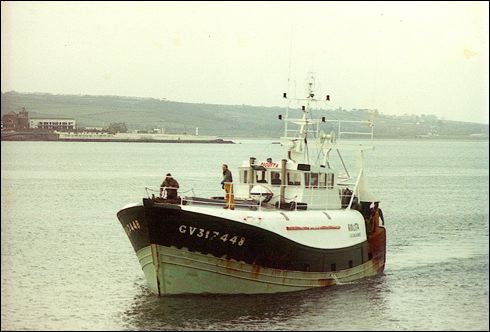The law of unintended consequences may be activated if this scheme enables a large number of inshore vessels to sell fish more directly to the public - by-passing existing market/fish auction infrastructure.
New £1 million grant scheme opened today to increase supply of local seafood from the sea to the door new grant scheme to support seafood businesses in England to sell catches.
- New £1 million grant scheme opened to increase supply of local seafood
- Seafood businesses can bid for funds for assets and infrastructure to sell seafood
- Part of a £10 million fund for England’s fishing and aquaculture sectors
The government opened for applications a new Domestic Seafood Supply Scheme, which will fund projects that will help seafood businesses in England increase the supply of local seafood to domestic markets.
As well as this financial support, qualifying seafood businesses may also qualify for other Government support. MMO has produced a guide to what is available.
This scheme will help seafood businesses adapt to changes in their markets caused by COVID-19 by helping fund changes to businesses and/or infrastructure that will help them to sell their products domestically, and support projects that increase domestic consumption of seafood landed or processed in England.
The Marine Management Organisation (MMO) will accept applications for projects that support domestic sales of locally-caught fish and shellfish from Wednesday 29 April to Monday 11 May.
Projects will be assessed by a panel including industry representatives. Successful applications will be announced from Friday 15 May.
The scheme will fund measures that assist the industry to set up local and regional distribution such as plant and equipment to help with local fish processing, or assets that can be shared at port such as storage and refrigerated vans.
Fisheries Minister, Victoria Prentis said:
This new grant scheme, part of a £10 million lifeline for our fisheries sector, will help our fishing industry find new markets for their catch during this challenging time which has seen falling prices and a downturn in restaurant and export sales.
With growing demand for meals at home we are also looking for innovative ways to help fishermen adapt and be equipped to sell direct to local consumers.
Applications are invited from groups of businesses in the fishing, aquaculture and fish processing industries or individual businesses engaged in activities which support the seafood supply chain.
Projects are invited that:
- Maintain the availability of fisheries products through innovative regional distribution.
- Support the development of infrastructure to sell fish landed into English ports, or fish processed in England, to domestic consumers.
- Help develop the infrastructure necessary for the catching and processing sectors to connect directly with consumers (e.g. either through online platforms or through facilitation on the ground).
- Have the potential to generate longer-term sustainable benefit to the seafood industry, creating supply chain resilience
To support fisheries, the MMO has expanded its grants team and increased its opening hours to administer the Fisheries Response Fund (FRF) which was announced at the same time as the Domestic Seafood Supply Scheme. In the first week, the MMO team has made FRF payments of over £2 million to over 500 fishing vessel owners so far.
Tom McCormack, Chief Executive Officer of the MMO said:
Our MMO team is highly experienced in supporting the fisheries industry and has mobilised to design and deliver the new FRF and now the Domestic Seafood Supply Scheme in the fastest possible time. With the support of the fishing industry we have set up a panel who will make the decisions to ensure that our industry gets the funds needed to be able to make the greatest difference in developing the domestic market.
Development is also underway to provide other support for the aquaculture sector under the Fisheries Response Fund (FRF). An announcement is planned soon.
Published 29 April 2020








